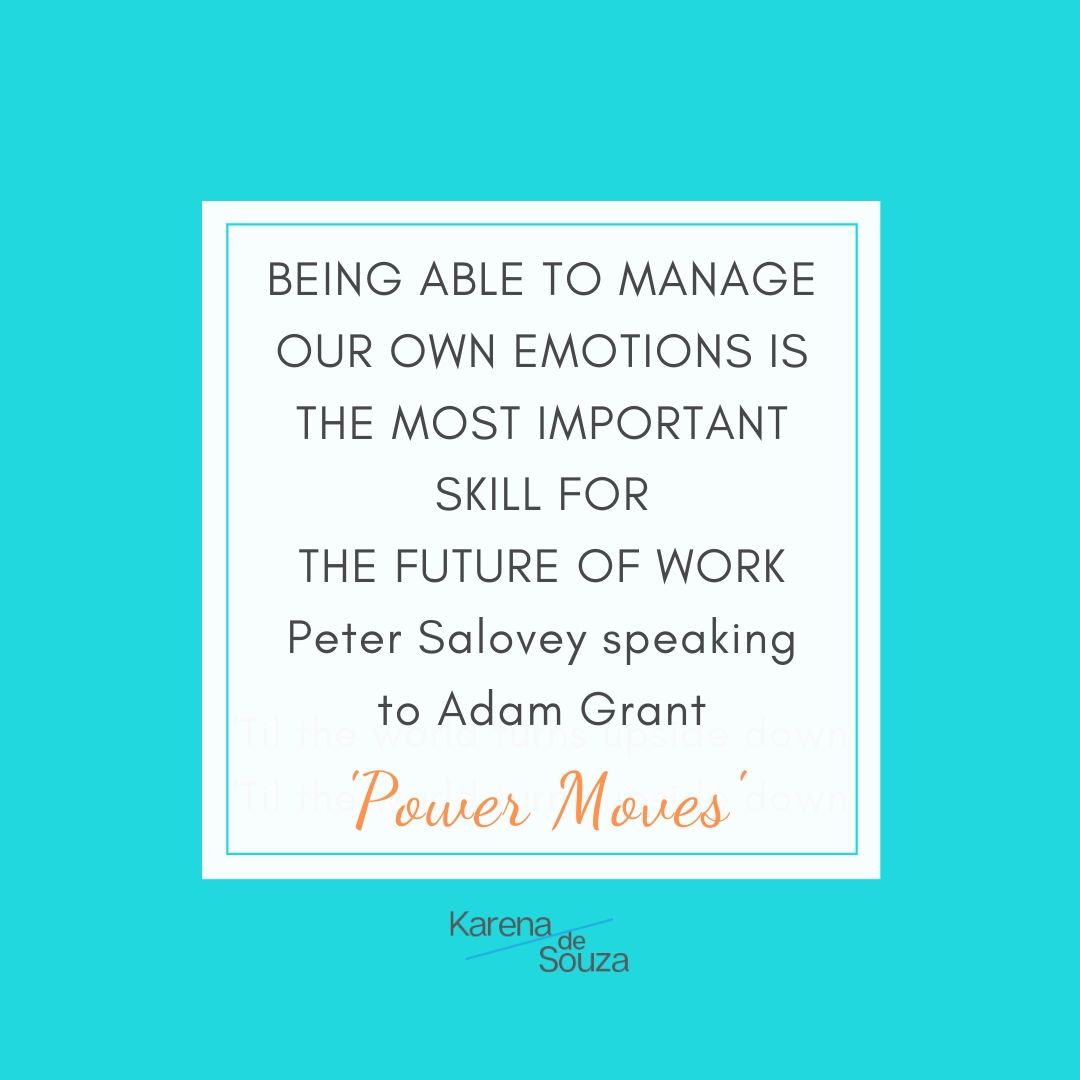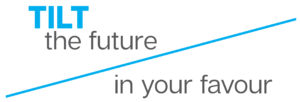
14 Apr Corona crisis is helping us prepare for the Future of Work
As we move into the Future of Work, robots and AI are moving more aggressively into the realm of IQ – the knowledge space. (Ray Dalio, Principles)
Which means that we still own the space around emotional intelligence or EQ.
The algorithms are crowd-sourcing information based on ‘people like us’. They are beginning to recognize what might interest us and give us the ‘recommended for you’ Netflix watchlist, Spotify playlist or suggestions for recipes to try out based on our past history and the connected interests of others matching our profile and demographics.
AI in a Covid-era
As we sink deeper into a Covid-era we are eager to leverage these good facets of AI :
- leveraging AI to identify possible drug interventions
- the possibility of assisting with contact-tracing
- possibly using facial recognition to predict symptoms a little earlier in the cycle
These algorithms are getting better at assisting us in the decision-making process. But in the words of Peter Salovey (alongside John D Mayer, he helped research and coin the phrase Emotional Intelligence in 1990) the machines don’t make decisions for us, and cannot yet manage our emotions for us.
Therefore, our ability to understand and manage our own emotions is going to be a very powerful skill set as we move ahead in the Future of Work.
Some good listening opportunities
A side benefit of standing in line for hours on my Covid shopping adventure was the opportunity to listen to Adam Grant’s audiobook ‘Power Moves‘.
And there, in Chapter 5 titled Robot Power his interview with Peter Salovey delved deeply into the ideas around Emotional Intelligence (also known as EQ) I found my gem. He talked about 3 different components that make up EQ:
- Being able to recognize and identify emotions – within our selves. And then through non-verbal cues, with others.
- Understanding emotions and the language of emotions, and the subtle differences between the gradations.
- Managing emotions, and in particular, regulating our own emotions.
Of all these, they both agreed, being able to manage our own emotions would probably become the most important skill as we move into the Future of Work.
And now for the longer read, or how I connect those dots …
Covid as an accelerant for Future of Work
From my perspective, this Covid Crisis has put our trajectory towards the Future of Work on FF.
In the space of a few short weeks, we find ourselves suddenly leveraging many of the experimental techniques & technologies that we were debating just weeks previously. Business and society alike are joined in common cause as we try not only to survive this pandemic, but to actually make the most of this crazy situation that we find ourselves in.
- AI algorithms are helping us to deliver PPE product where it needs to be
- Many of us are understanding our ability to stay productive and connected while not physically on-site, as we protect those who do not have the choice of dialing it in.
- Discussions around the precarious reality of the Gig economy have shown the need for social support in some form of Universal Basic Income and medical coverage
The good stuff is bubbling to the top.
And the cracks are showing in the badly patched up infrastructure we were building upon.
Leveraging robots and AI for good
Most visibly is the increased use of nascent AI and robotic programs.
- Robots are being used as surrogate vehicles as doctors check in with Covid-19 patients without having to suit up in precious PPE (personal protection equipment).
- We are experimenting with self-driving vehicles to make grocery deliveries to those sheltering-in-place.
- Among those most vulnerable are more senior members of our communities, many of them living alone and now isolated. They are embracing technologies that allow them to survive in place while the social distancing rules remain in effect. We are seeing drone deliveries being experimented with.
- We are searching out AI algorithms that will reduce our wait time and exposure in the shopping queue; improve our ability to connect with family on the other side of the globe.
In short, instead of the fear of these technologies taking away our livelihoods and available jobs, harking back to Faethm’s Mike Priddis presentation at MaRS in 2018,
we are learning how to co-exist with AI and robots
how to use them to augment and enhance our lives.
Which brings me back to …
Power Moves, Robot Power and Covid
In a world where Robots, AI & algorithms will play a significant role,
in a ‘Future of Work’ where the knowledge will become more accessible and available to machines
machines will help us sift through the choices and even suggest decisions for us.
But EQ will remain in the domain of us humans.
Humans will still be in control of our own emotions and how we manage them.
And as I wrote the articles on Faith. Hope. and Charity. it became clear that our younger generation – and indeed many of us – are being gifted this hiccup in time to learn how to sit with ourselves, how to learn to read the emotions of others, how to respond with compassion, how to recognize and react to the range of our emotions.
Learning to obey a new set of rules on social distancing, improving our hygiene and reducing our social interactions.
We are learning how to stand up for ourselves, how to voice our anger and our fear.
Learning how to move past that towards working constructively together.
We are learning how to communicate effectively and how to work creatively.
We are learning intense patience and how to sit with the discomfort of the unknown.
In the words of Peter Salovey and Adam Grant, we are learning to manage and regulate our own emotions – one of the most important skills that will help us migrate successfully into the inevitable Future … or should I say New World .. of Work.
GenZ, Gen Covid, Gen Next
Right now we are modeling these very valuable skills in real-time, often in person, for the next generation.
We get an education through teaching, but we learn through experience.
And this might be the hidden & costly value in the middle of this incredible pandemic,
An opportunity to launch that lifetime of learning for a generation that will undoubtedly grow up human in a world alongside robots, drones, AI and algorithms as we step boldly forward into the Future of Work.




No Comments